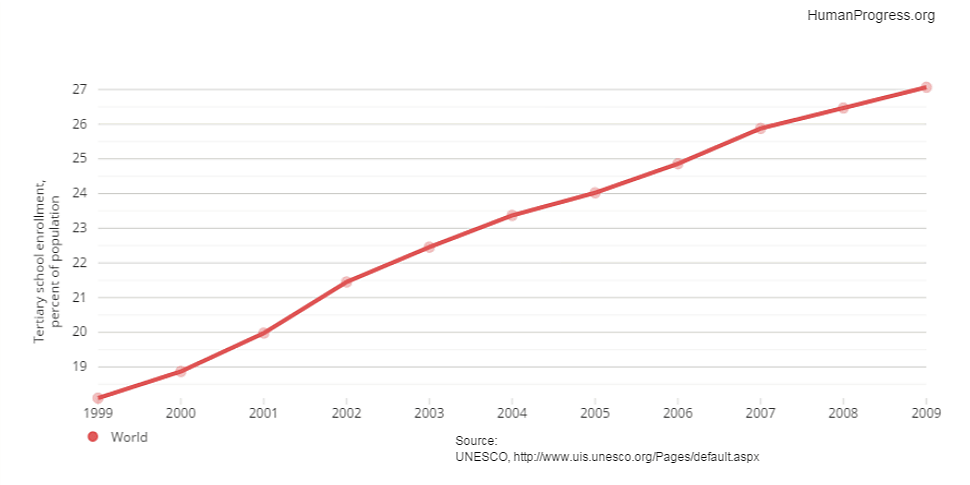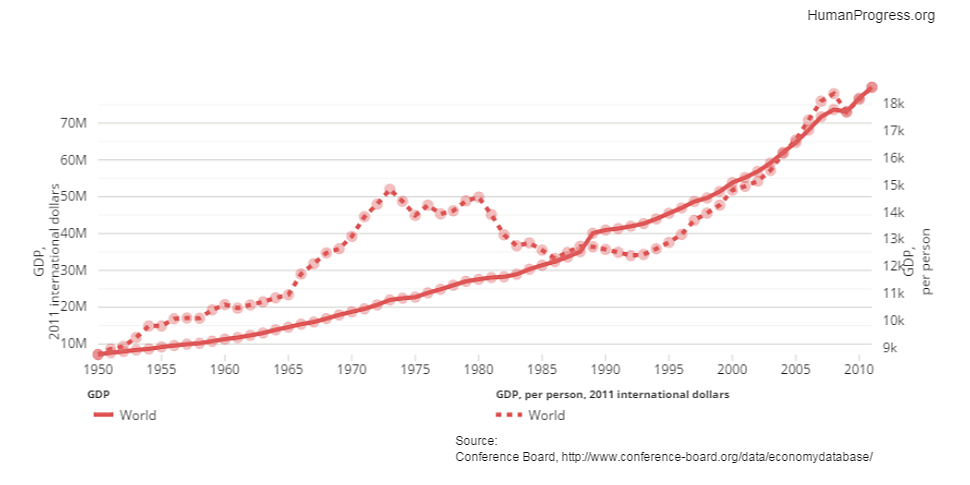There has never been a better time to be alive on this planet. While many measures of wellbeing are already on a positive trajectory, humanity’s innate curiosity and enterprising spirit continue to push many individuals to seek the stars. The Rosetta mission’s successful comet landing was just the latest development. Privately-funded initiatives, such as SpaceX and Mars One, are taking the lead on a bolder project: a mission to Mars. Greater availability of knowledge and resources is enabling ever-more ambitious space exploration.
Successful space exploration requires expertise. Today, more people pursue advanced degrees globally, many of them in critical fields like physics, math, computer science, geology, and engineering. Furthermore, scientific knowledge compounds over time, and so each generation understands more than the last.
With a higher quantity and quality of scientists, mathematicians, and engineers than at any point in history, humankind is better equipped than ever to tackle the complex challenges of extraterrestrial travel.
Space exploration also requires a tremendous investment of resources. Throughout most of history, even if humankind had possessed the technical knowledge for space travel, scarcity would have prohibited the endeavor. Fortunately, wealth and prosperity are rising rapidly while poverty is in decline. Increasing abundance makes it possible to take on previously unthinkable projects like space exploration.
Increasing abundance and scientific advancement are expanding humanity’s capacity to pursue ambitious undertakings. Not only has there never been a better time to be alive on this planet, but, thanks to growing prosperity and knowledge, there has also never been a better time to attempt exploration beyond Earth.


